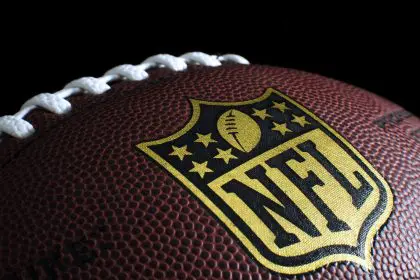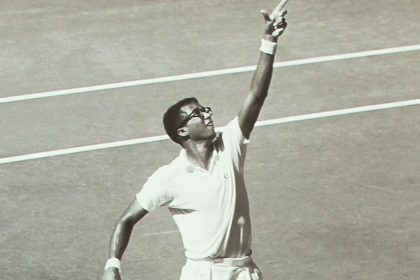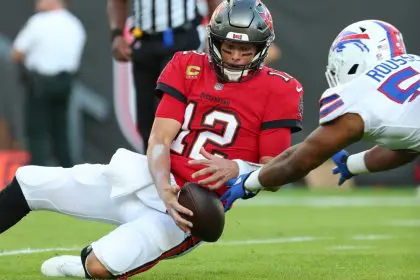 With the greatest sporting event looming, it is not uncommon for many NFL players to sustain multiple injuries during the season, let alone there entire NFL careers to be able to play on the great stage we call the Super Bowl. However, the psychological trauma associated with dealing and/or recovering from an injury are scars that many times do not leave the player. Although the physical injuries may eventually heal, they are frequently accompanied by psychological symptoms such as initial shock, anxiety, anger, depression, difficulty concentrating, insomnia, lassitude, loss of libido, altered appetite and weight and, in some cases, feelings of helplessness, horror, despair and reliving experiences.
With the greatest sporting event looming, it is not uncommon for many NFL players to sustain multiple injuries during the season, let alone there entire NFL careers to be able to play on the great stage we call the Super Bowl. However, the psychological trauma associated with dealing and/or recovering from an injury are scars that many times do not leave the player. Although the physical injuries may eventually heal, they are frequently accompanied by psychological symptoms such as initial shock, anxiety, anger, depression, difficulty concentrating, insomnia, lassitude, loss of libido, altered appetite and weight and, in some cases, feelings of helplessness, horror, despair and reliving experiences.Many NFL alums has expressed that the league has done little to help ex-players coping with serious medical issues. Mike Webster, 50, died of a heart attack in 2002, three years after doctors diagnosed him with brain damage they traced to repeated hits to the head playing football and former defensive back Andre Waters, 44, committed suicide in 2006. Post-mortem testing revealed Waters had brain damage probably resulting from successive concussions, and recently there was the tragic death of David Duerson of the Chicago Bears.

Initial shock. Shock occurs when a person has endured a traumatic experience, like a serious physical injury or emotionally harrowing incident. The state of mind is affected and in more severe cases, professional help may be required. Psychological shock can disrupt one’s life, making them preoccupied with the event or news that caused the shock. The individual may also have difficulty coping with day to day functioning such as personal relationships and work.
Anxiety. Many athletes who sustain an injury develop associated anxiety with the injury. This can make an athlete feel pressure to succeed, pressure of failing, fear of injury, fear of re-injury, or anxiety about overcoming an injury. A major source of this is the fear of failure, concerns about social evaluation by others, especially their coach and lack of readiness to perform when
Anger. Anger is usually a central feature of an athlete’s response to physical trauma associated with an injury. Mainly because it is a core component of the survival response in humans. Anger helps people cope by providing us with increased energy to persist in the face of obstacles. However, uncontrolled anger can lead to a continued sense of being out of control of oneself and can create multiple problems in the personal lives of those who suffer i9njury and are unable to cope with the sustained
Depression. Depression is one of the most frequent psychological outcomes athletes suffer in the first year after an injury. Depression is a medical illness that causes a constant feeling of sadness and lack of interest. Depression affects how the person feels, behaves and thinks. Athletes who have been seriously injured may even develop severe depressive illness. This is chaterizied by having hallucinations, delusions, and/or withdrawing from reality, and even psychosis. Left undiagnosed and untreated, depression can worsen, lasting for years and causing untold suffering, and possibly suicide.
Difficulty concentrating. When athletes suffer injuries, even those not affiliated with head, neck and brain injuries, one consequence is difficulty concentrating. This means a person may be easily distracted or make careless mistakes People who have this problem also often feel it is hard or difficult to sit still and listen to someone talk. Difficulties with attention and concentration can occur for many reasons, including an injury, such as a traumatic brain injury, dealing with chronic pain or severe headaches. Difficulty concentrating will often make one feel that others do not understand and may lead to issues of anger and depression.
Insomnia. One of the leading causes of insomnia is chronic pain. Insomnia refers to being awake for prolonged periods during the night. It may result in other psychological outcomes such as irritability and anger. Thirty to 70 percent of athletes who have had traumatic brain injury (TBI) suffer from insomnia.
Loss of libido. Impotence can also be caused by physical or psychological factors. However, in many cases, both of these are involved. These have the effect of reducing the sex drive and the ability to have an erection. Often when athletes are injured and are trying to recover, stress increases and becomes a major factor for the loss of sexual desire in men.
Altered appetite and weight. Because depression in patients with chronic pain frequently goes undiagnosed, it often goes untreated. When depression develops due to sustaining an injury, along with sleep disturbances, loss of appetite often occurs making physical pain much worse.
Feelings of helplessness, suffering an injury are a traumatic experience for athletes. When people find themselves in new and precarious situations, sometimes they are overcome with feelings of fear and helplessness. If these problems are severe, they can begin to cause problems in the survivor’s family. In addition, it makes the individual more likely to feel and experience the same mental, emotional, and physical experiences that occurred during or just after the trauma repeatedly. If left untreated, a person may Re-experiencing symptoms and these feeling will become associated with the injury causing event each time they step on the field of play.
–Dr. Torrance Stephens has a prodigious career as a professor, scientist, prolific author, popular sociopolitical blogger and world traveler. Follow him on Twitter: @rawdawgbuffalo
















